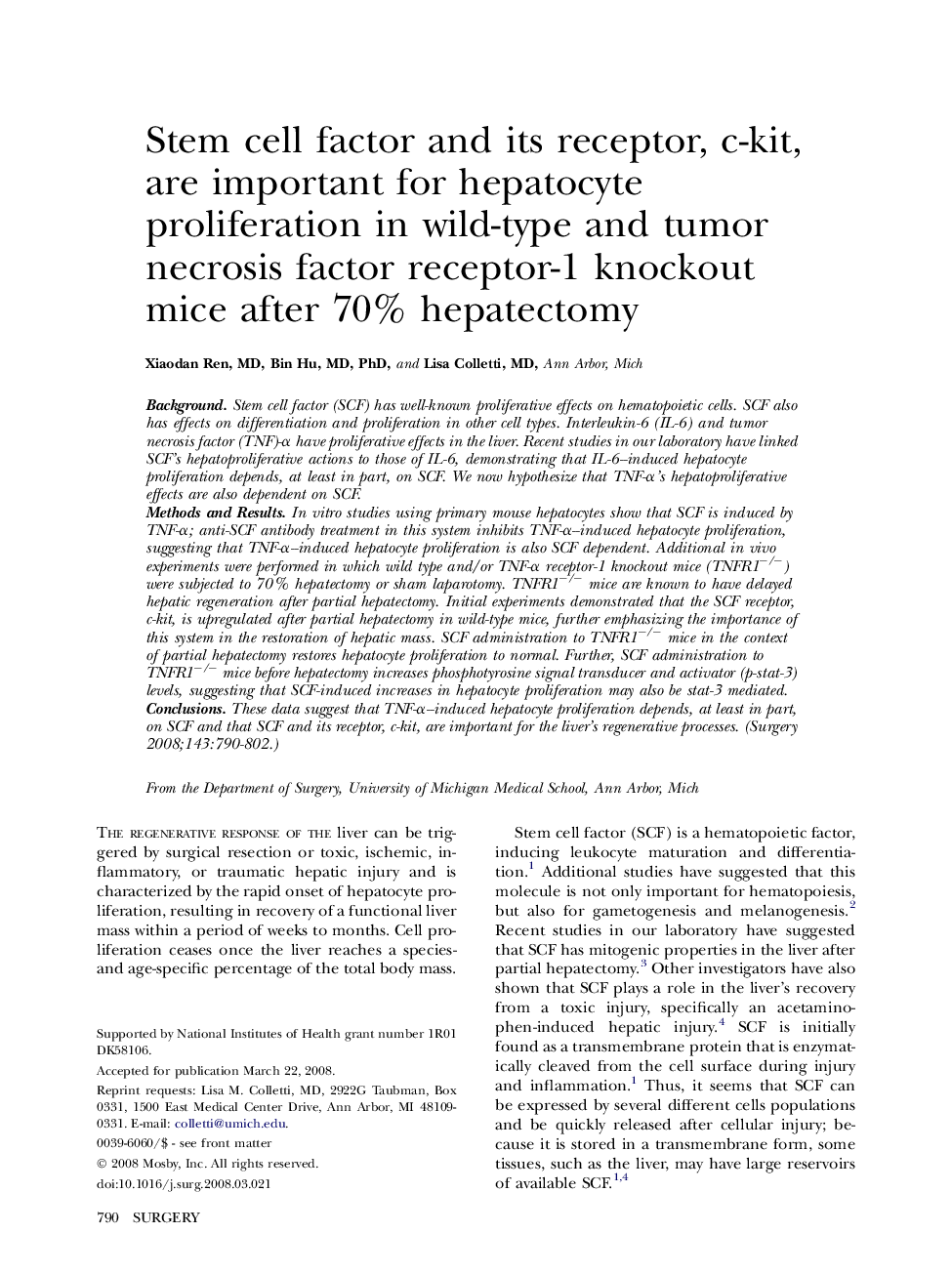| Article ID | Journal | Published Year | Pages | File Type |
|---|---|---|---|---|
| 4309922 | Surgery | 2008 | 13 Pages |
BackgroundStem cell factor (SCF) has well-known proliferative effects on hematopoietic cells. SCF also has effects on differentiation and proliferation in other cell types. Interleukin-6 (IL-6) and tumor necrosis factor (TNF)-α have proliferative effects in the liver. Recent studies in our laboratory have linked SCF's hepatoproliferative actions to those of IL-6, demonstrating that IL-6–induced hepatocyte proliferation depends, at least in part, on SCF. We now hypothesize that TNF-α's hepatoproliferative effects are also dependent on SCF.Methods and ResultsIn vitro studies using primary mouse hepatocytes show that SCF is induced by TNF-α; anti-SCF antibody treatment in this system inhibits TNF-α–induced hepatocyte proliferation, suggesting that TNF-α–induced hepatocyte proliferation is also SCF dependent. Additional in vivo experiments were performed in which wild type and/or TNF-α receptor-1 knockout mice (TNFR1−/−) were subjected to 70% hepatectomy or sham laparotomy. TNFR1−/− mice are known to have delayed hepatic regeneration after partial hepatectomy. Initial experiments demonstrated that the SCF receptor, c-kit, is upregulated after partial hepatectomy in wild-type mice, further emphasizing the importance of this system in the restoration of hepatic mass. SCF administration to TNFR1−/− mice in the context of partial hepatectomy restores hepatocyte proliferation to normal. Further, SCF administration to TNFR1−/− mice before hepatectomy increases phosphotyrosine signal transducer and activator (p-stat-3) levels, suggesting that SCF-induced increases in hepatocyte proliferation may also be stat-3 mediated.ConclusionsThese data suggest that TNF-α–induced hepatocyte proliferation depends, at least in part, on SCF and that SCF and its receptor, c-kit, are important for the liver's regenerative processes.
